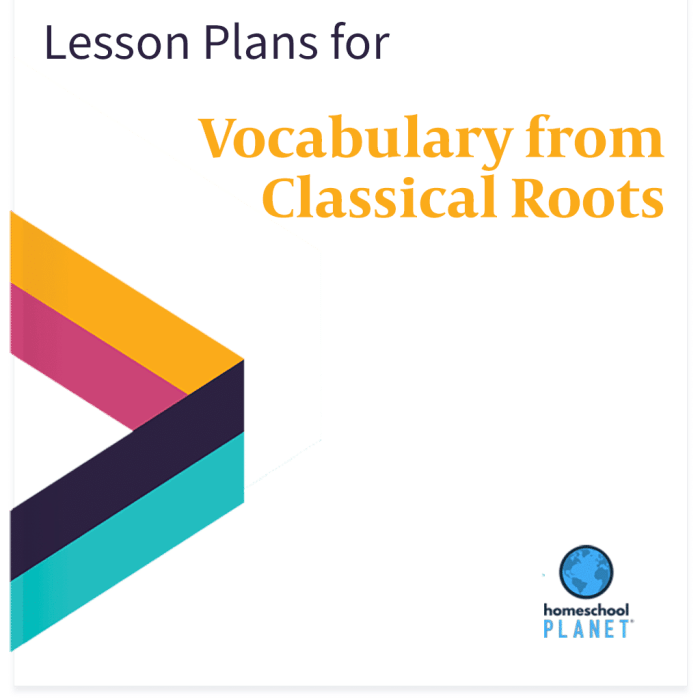Vocabulary from classical roots a – Vocabulary from classical roots has significantly shaped the development and richness of the English language. With origins in Latin and Greek, these words permeate various semantic fields, contributing to the precision and nuance of English vocabulary. This exploration delves into the etymology, morphological structure, usage, and cultural significance of words with classical roots, unraveling their profound impact on the English language and Western civilization.
The historical origins of words with classical roots in English, their influence on the development of English vocabulary, and examples of words with clear etymological connections to classical languages are discussed in detail.
Etymology of Vocabulary from Classical Roots: Vocabulary From Classical Roots A

The English language has borrowed a significant portion of its vocabulary from classical languages, particularly Latin and Greek. This influence dates back to the Roman conquest of Britain and the subsequent spread of Christianity, which brought with it Latin as the language of the Church and scholarship.
The influx of Latin and Greek words into English has had a profound impact on the development of the language, enriching its vocabulary and providing it with a wealth of words to express complex ideas and concepts.
Semantic Fields of Classical Root Vocabulary
Words with classical roots are found in a wide range of semantic fields, including:
- Philosophy and Religion:words like “ontology,” “theology,” and “exegesis”
- Science and Medicine:words like “biology,” “anatomy,” and “pathology”
- Law and Government:words like “jurisprudence,” “legislature,” and “democracy”
- Art and Literature:words like “aesthetic,” “drama,” and “epic”
These words contribute to the precision and nuance of English vocabulary, allowing for the expression of subtle distinctions and complex ideas.
Morphological Analysis of Classical Root Vocabulary, Vocabulary from classical roots a
Words with classical roots often have a complex morphological structure, consisting of prefixes, suffixes, and roots.
Prefixes, such as “anti-” (against) and “sub-” (under), modify the meaning of the root word.
Suffixes, such as “-tion” (action or state) and “-ity” (quality or condition), indicate the part of speech and provide additional grammatical information.
Roots, such as “scrib” (write) and “spect” (look), carry the core meaning of the word.
Understanding the morphological structure of words with classical roots helps to determine their meaning and usage.
Usage and Context of Classical Root Vocabulary
Words with classical roots are typically used in formal and academic contexts, where precision and nuance are valued.
They are often found in technical and scholarly writing, as well as in legal and government documents.
The usage of classical root vocabulary can impact the tone and meaning of writing, conveying a sense of authority, formality, and sophistication.
Cultural and Historical Significance of Classical Root Vocabulary
The presence of classical root vocabulary in English reflects the profound influence of classical civilization on Western culture and thought.
These words embody the intellectual and artistic heritage of Greece and Rome, providing a connection to the ideas and values of the ancient world.
Classical root vocabulary has shaped the development of English literature and thought, providing a rich vocabulary for expressing complex ideas and exploring human experience.
Detailed FAQs
What are the benefits of studying vocabulary from classical roots?
Studying vocabulary from classical roots enhances vocabulary, improves reading comprehension, aids in understanding technical and specialized terminology, and fosters an appreciation for the historical and cultural significance of words.
How can I improve my vocabulary from classical roots?
Regular reading of classical literature, studying word origins and etymologies, practicing root analysis, and using flashcards can help improve vocabulary from classical roots.
